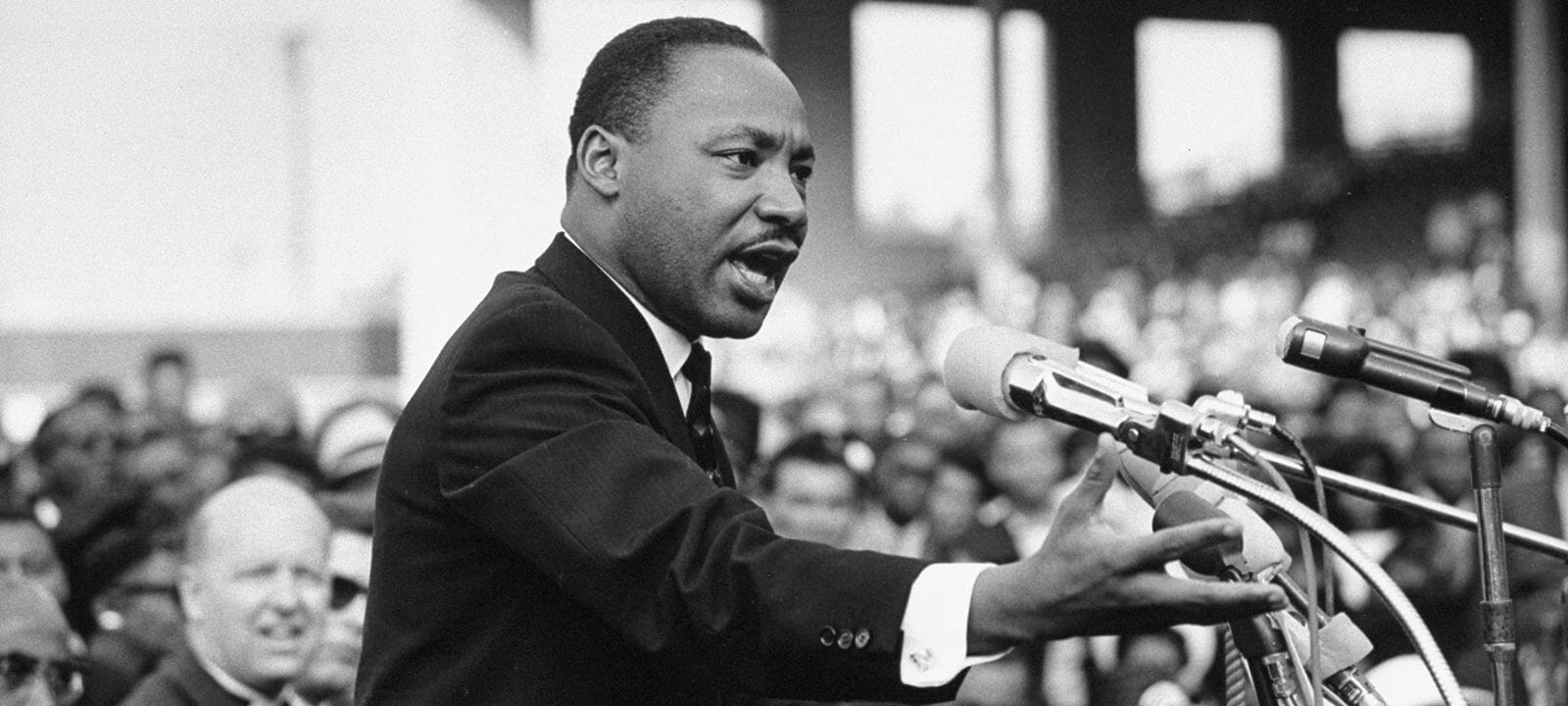
What would Martin do?
Rev. Dr. Debora Jackson
January 15, 2019
Amid a government shutdown, battles over border wall funding, political polarization, continuing involvement in armed conflicts, and posturing by elected officials, I have found myself posing a provocative question: “What would Martin do?” On some levels, I know that it’s a trivial thought. After all, the Rev. Dr. Martin Luther King, Jr. was assassinated 51 years ago. But recognizing that King would be 90 years old this year had he lived, it is not beyond the realm of possibility that one might make such an inquiry of a 90-year-old, “What would you do?”
Now it’s fanciful speculation to believe that we can extrapolate from past speeches on related topics to offer projections on what King might say about a border wall or the conflict in Syria, for example, although I know numerous articles have attempted to do just that. But I maintain that it is not quite that simple. For example, it would be easy to believe that King would be supportive of immigration, given his stances on civil rights and justice. But the history of the United States reminds us of the industrial revolution of the twentieth century when American shores were flooded with European immigrants who came to this came to this country only to enjoy preferential treatment over African American citizens in terms of jobs and opportunities. Would King advocate for the rights of newcomers at the risk of supplanting those for whom his life’s work was dedicated? That is hard to imagine.
Amid a government shutdown, battles over border wall funding, political polarization, continuing involvement in armed conflicts, and posturing by elected officials, I have found myself posing a provocative question: “What would Martin do?”
However, rather than attempting to discern King’s beliefs regarding various political positions, I think it is more appropriate to remember King’s true call as a Baptist preacher. I look to that King when I wonder, “What would Martin do?” I look to that King to understand how he heard God during these painful and polarizing situations. So when I consider, for example, the issue of nationalism, I know that King looked to Isaiah 40:15 where the prophet writes, “Even the nations are like a drop from a bucket and are accounted as dust on the scales.” Isaiah asserted that nations are nothing before God, and King interpreting Isaiah feared that through nationalism, people sought to make nations into gods. King saw people attempting to create a new religion out of nationalistic sentiment and he spoke out against such idolatry. He asked, “Will we continue to serve the false god that places absolute national sovereignty first or will we serve the God in whom there is no east or west? Will we serve the false god of imperialistic greed or will we serve the God who makes love the key which unlocks the door of peace and security?” (1) What would Martin do? Martin would serve the God of love who ushers in peace.
But more than that, I believe that King would encourage us to once again don a mantle of “divine dissatisfaction.” He uttered this alliterative phrase having reverted to preaching in his public address, “Where Do We Go from Here?” in 1967. Referencing John 3, King reminded us that Jesus, in his conversation with the Pharisee named Nicodemus, did not become mired in a litany of what one should or shouldn’t do to be saved. Instead, Jesus cut to the heart of the matter and said, “You must be born again.” According to King, Jesus was insisting that “Your whole structure must be changed.” Specifically, our structure objectifies and exploits. Rather than see people, we turn them into mobs, monsters, criminals, and gangs. And when such objectification is complete, it becomes easy to use military might, economic policy, and nationalistic sentiment as a justified reaction against that threatening object. What would Martin do? He would say again just as he said 52 years ago, “America, you must be born again!”
What would Martin do? He would say again just as he said 52 years ago, “America, you must be born again!”
I would argue that being born again requires us to declare a “divine dissatisfaction” with what is going on in our nation. King did not say anything about a border wall separating the United States and Mexico, but he wanted us to be dissatisfied by the wall that separates those who have from those who do not have. King did not speak about Deferred Action for Childhood Arrivals, but he encouraged us to be dissatisfied until “integration is not seen as a problem but as an opportunity to participate in the beauty of diversity.” (2) Certainly, King knew all about the issues of white supremacy, but in response he said, “Let us be dissatisfied until that day when nobody will shout “White Power!” – when nobody will shout “Black Power!” – but everybody will talk about God’s power and human power.” (3) The preacher, Rev. Dr. Martin Luther King, Jr., would urge us to be divinely dissatisfied, for in that dissatisfaction, we would carve out an audacious hope for the future: a hope born of justice, peace, and unity. That’s what Martin would do, and I am inspired to do likewise.
The Rev. Dr. Debora Jackson is director of Lifelong Learning at Yale Divinity School. Her book “Spiritual Practices for Effective Leadership: 7Rs of SANCTUARY for Pastors” is available through Judson Press.
The views expressed are those of the author and not necessarily those of American Baptist Home Mission Societies.
Notes
(1) Martin Luther King, Jr. “The False God of Nationalism,” July 12, 1953.
(2) Martin Luther King, Jr. “Where Do We Go From Here,” August 16, 1967.
(3) Ibid.
Want the latest from The Christian Citizen?
Subscribe to Christian Citizen Weekly

